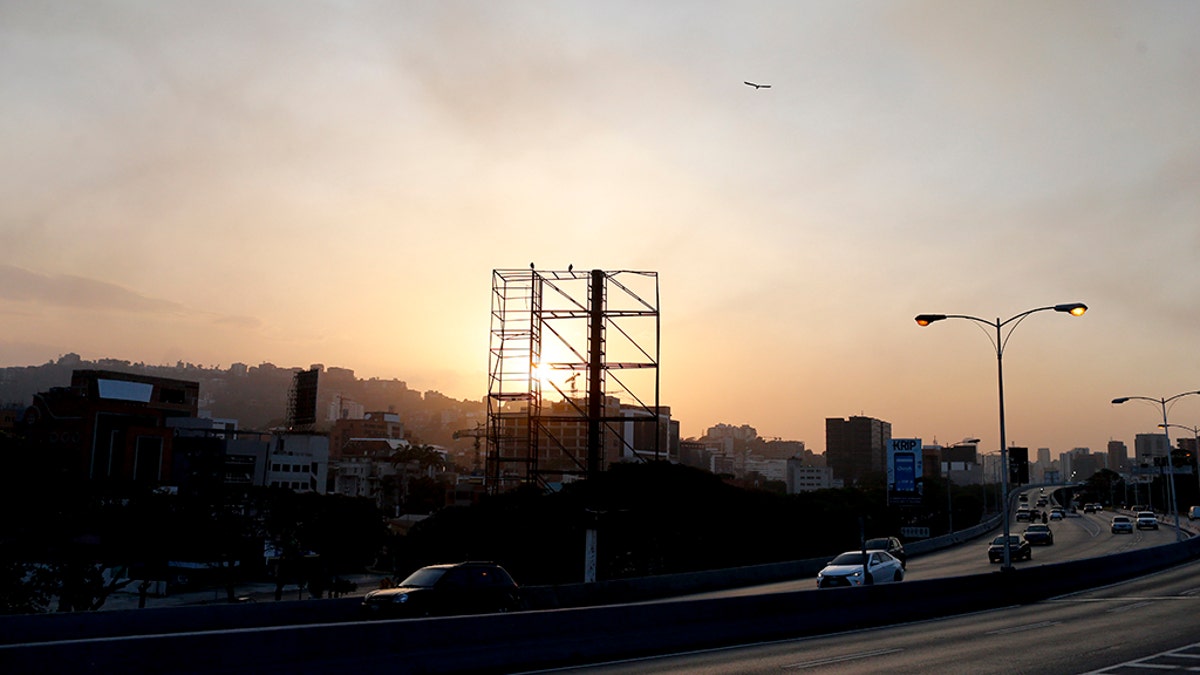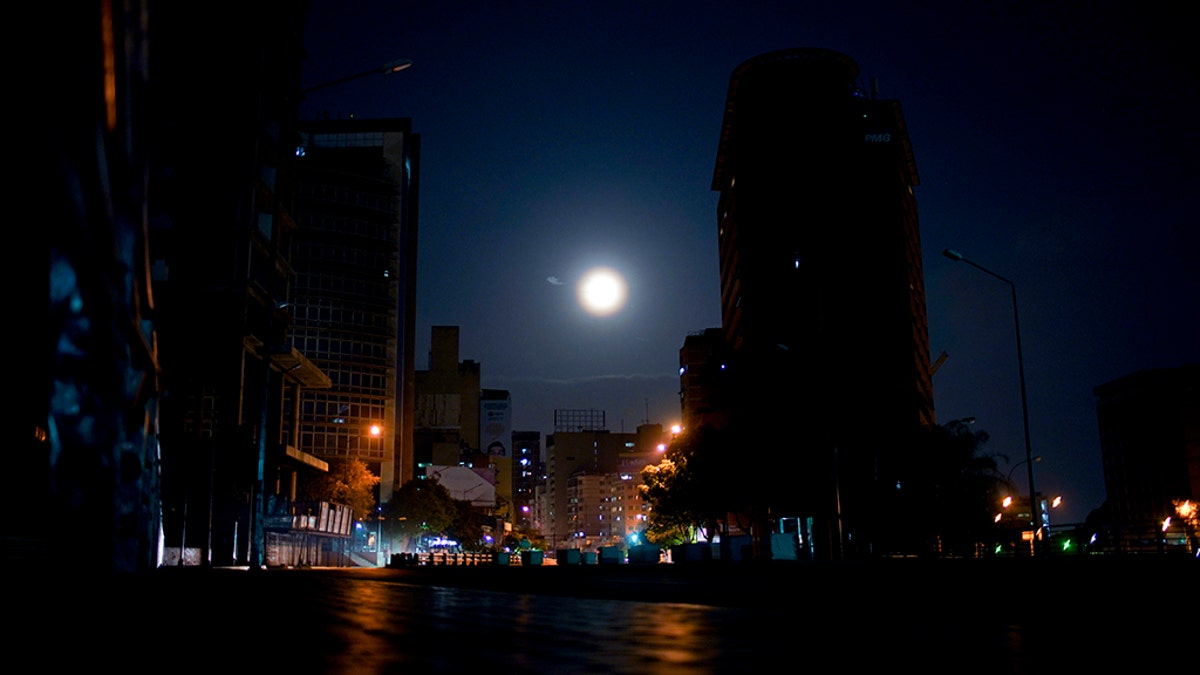
A billboard stands empty above a highway with no traffic as the sun sets in Caracas, Venezuela, Monday, March 18, 2019. When the sun goes down in Venezuela's capital, the once-thriving metropolis empties under darkness. (AP Photo/Natacha Pisarenko)
Caracas at night was like many major cities around the world – crazy traffic, people going in and out of shops, eateries, and dance clubs -- but now, as night falls in the Venezuelan capital, it seems more and more like a ghost town.
Many street lights don’t work. Residents avoid stepping outside their homes due to crime — or for lack of anything to spend — as a creeping economic collapse has accelerated amid a political battle between socialist President Nicolas Maduro and his foes at home and abroad. A string of devastating nationwide blackouts last month dramatized the decay.
Even under the light of day, billboards often have nothing to promote, their skeletal framework bare long after the wind has ripped away old advertising.
VP MIKE PENCE TO MEET IN DC WITH FAMILIES OF 6 CITGO EXECS DETAINED IN VENEZUELA
As dusk falls, many storefronts are just graffiti-scrawled security doors chained shut. Often just a single business along a city block is able to stay open, awaiting sparse customers. Others close earlier, like a beauty salon, the few remaining clients forced to decide between the simple luxury of haircut or buying food.
Caracas’ La Mercedes neighborhood, famous for its upscale shopping and nightlife, hasn’t been spared. Many of its pubs and fancy restaurants are devoid of waiters and customers. A shopping mall keeps its lights on, but the doors lock hours earlier than they did before, when they teemed with life.

The moon rises above an empty avenue in Caracas, Venezuela, late Thursday, March 21, 2019. Residents avoid stepping outside their homes due to crime, or for lack of anything to spend. (AP Photo/Natacha Pisarenko)
High-rise buildings stand unfinished, the workers having long ago abandoned their jobs. Windows are covered over with cardboard rather than finished with glass.
Residents desperate for cash transform patches of sidewalk into their impromptu shops, laying out old shoes or second-hand shirts as merchandise.
The poor and hungry scour through household trash, scattering it across street corners before it’s collected, grabbing anything they can use or eat.
The despair and blight mark a precipitous fall for a country that has larger oil reserves than Saudi Arabia and that had one of Latin America’s highest living standards.
Maduro blames his domestic political opponents and the increasing grip of U.S. economic sanctions, which he says are part of a coup aimed at toppling his socialist government.
CLICK HERE TO GET THE FOX NEWS APP
The opposition, led by lawmaker Juan Guaidó, blames years of corrupt leadership, lack of investment and economic bungling that has left the country dependent on a collapsing oil sector and on remittances sent home by the millions who have fled the growing hardship.
Meanwhile, on Wednesday, 15 U.S. senators introduced bipartisan legislation to provide $400 million in new aid, internationalize sanctions and ease penalties on Venezuelan officials who recognize Guaidó as the country's president.
Maduro still retains the support of much of the Venezuelan's military, including its hierarchy, and still gets aid from countries such as Russia, Cuba and China.
David Smilde, a Venezuela expert at Tulane University, wrote in The Conversation: "Russia has become Maduro’s most important ally. The Russian military equipment and personnel sent in March will likely help maintain and operate Venezuela’s sophisticated Russian-made S-300 air defense system, which protects the capital and key military bases from air attack."
The Associated Press contributed to this report.
